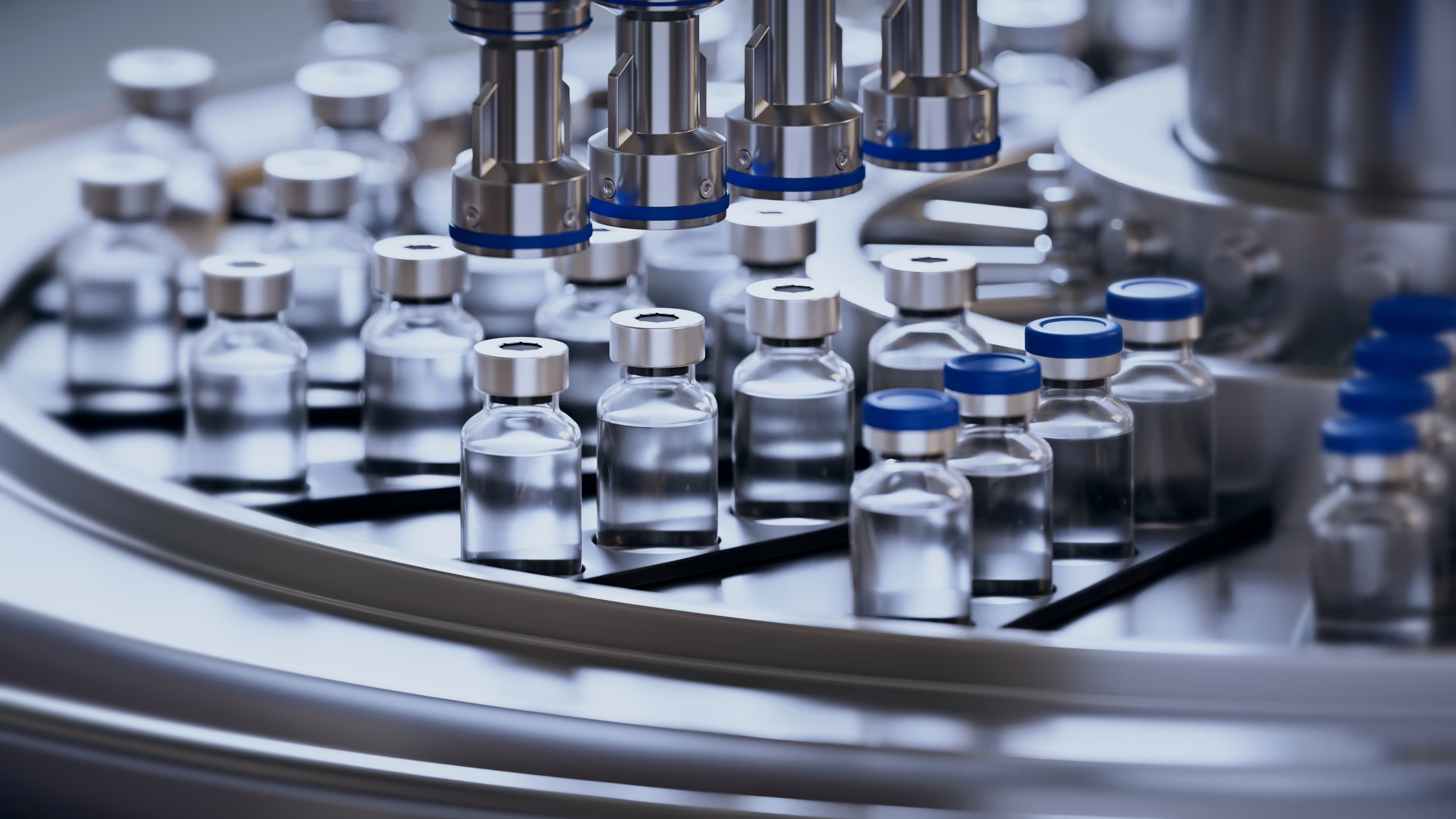The SPC manufacturing waiver, introduced in 2019 under Regulation (EU) No 2019/933, marked a pivotal development in EU pharmaceutical law.
It enables generic and biosimilar manufacturers to produce SPC-protected medicines for export to non-EU markets during the SPC term, and—within the final six months of protection—for storage within the EU ahead of commercial launch post-expiry. Designed to address competitive imbalances between EU-based manufacturers and those operating in non-EU jurisdictions, the waiver has prompted varied interpretations across Member States.
This article outlines the key legal requirements for manufacturers seeking to rely on the waiver, examines how national courts in Germany, the Netherlands, and Belgium have approached its implementation, and offers practical insights for navigating the evolving legal landscape.
Scope and legal basis of the waiver
The SPC manufacturing waiver is codified in Regulation (EU) No 2019/933, which amends Article 5 of the “SPC Regulation” (Regulation (EC) No 469/2009) concerning the “Effects of the Certificate.” This amendment introduces two key exceptions to the general rule that an SPC grants the same rights as the underlying patent. Specifically, the waiver permits certain manufacturing activities during the SPC term that would otherwise infringe the certificate.
However, access to these exceptions is conditional. Generic and biosimilar manufacturers must meet a series of regulatory requirements to benefit from the waiver. These obligations are designed to ensure transparency, safeguard the rights of SPC holders, and maintain a fair balance between innovation and market competition.
PERMITTED ACTS
The waiver allows two main categories of acts that would otherwise infringe the certificate:
- Manufacture for export
- Making a product, or a medicinal product containing that product, for the purpose of export to third countries.
- Manufacture for stockpiling
- Making, no earlier than six months before the expiry of the SPC, of a product, or a medicinal product containing that product, for the purpose of storing it in the Member State of making, in order to place that product, or a medicinal product containing that product, on the market of Member States after the expiry of the certificate. This is intended to enable day-one launch in the EU market immediately after expiry of the certificate.
In both instances, the waiver includes related acts strictly necessary for the making or for the actual export or storing of the product or medicinal product such as possessing; offering to supply; supplying; importing; using or synthesising an active ingredient for the purpose of making a medicinal product; or temporary storing or advertising for the exclusive purpose of export to third-country destinations.
CONDITIONS FOR MANUFACTURERS
To benefit from the SPC manufacturing waiver, generic and biosimilar manufacturers must adhere to a set of procedural and substantive obligations. These include:
- Notification obligations
- Manufacturers must notify both:
- the SPC holder, and
- the intellectual property office in the Member State where the manufacture or related act will occur,
at least three months prior to undertaking the making or first related act prior to that making.
The notification must include:
- Identity of the manufacturer: name and address;
- Purpose of manufacture: whether for export, stockpiling, or both;
- Territorial scope: Member State where manufacture, and if applicable the storing will take place, and the Member State in which the first related act, if any, prior to that making, will take place;
- SPC details: the number of the certificate granted in the Member State of making, and the number of the certificate granted in the Member State of the first related act, if any, prior to that making; and
- Marketing authorisation details: for export products, the marketing authorisation or equivalent in each third country of export, as soon as publicly available.
- Contractual safeguards
- Manufacturers must take appropriate and documented steps to ensure that any third-party contractors involved in manufacture, export, storage, or related acts:
- are fully informed that the activities are subject to the waiver, and
- understand that any other use of the product may infringe the SPC.
- Labelling requirements
- Products manufactured for export under the waiver must be clearly marked with the ‘EU export’ logo on the outer packaging and, where feasible, on the immediate packaging.
National Court Decisions: Diverging Interpretations
Recent rulings from national courts in Germany1, the Netherlands2 and Belgium3 have begun to shape the interpretation of the SPC manufacturing waiver, with notable decisions emerging in 2023 and 2024. These cases, involving disputes over Johnson and Johnson’s ustekinumab (Stelara®) and Amgen’s denosumab (Prolia® and XGEVA®), mark the first judicial engagements with the waiver’s provisions.
Despite the shared regulatory framework, these decisions reveal a significant divergence in judicial approach across Member States.
TIMING OF NOTIFICATION: MUST MARKETING AUTHORISATION NUMBERS BE INCLUDED?
One of the earliest and most contested issues in the interpretation of the SPC manufacturing waiver has been whether manufacturers must notify SPC holders of the marketing authorisation number in export territories before commencing manufacture.
Under Article 5(2)(b) of Regulation (EU) No 2019/933, manufacturers are required to notify both the SPC holder and the relevant intellectual property office of the information listed in paragraph 5, no later than three months before the intended manufacture or, if earlier, any related act. Paragraph 5(e) further provides that the marketing authorisation number for each export destination must be supplied “as soon as it is publicly available.”
This has given rise to two competing interpretations:
- SPC holders argue that the marketing authorisation number must be included in the initial notification, at least three months before manufacture begins.
- Biosimilar manufacturers contend that the three-month notification period can be triggered without the marketing authorisation number, provided it is supplied promptly once it becomes publicly available.
The Regional Court of Munich was the first to address this issue. In an interim decision issued in October 2023, the court adopted a restrictive interpretation, granting a preliminary injunction against Formycon. The injunction prevented Formycon from manufacturing a biosimilar of Stelara® (ustekinumab) on the basis that it had failed to include the marketing authorisation number or export country details in its notification to Janssen Biotech.
In contrast, the District Court of The Hague reached the opposite conclusion in January 2024, in proceedings between Janssen Biotech and Samsung Bioepis. Despite Samsung Bioepis not including marketing authorisation numbers for the UK, Canada, and South Korea in its notification concerning planned manufacture in Denmark and Italy, the court refused to grant an injunction. It held that the requirement to provide the marketing authorisation number “as soon as it is publicly available” does not necessitate its inclusion in the initial notification.
The Dutch court also rejected the Munich court’s view that manufacturers must disclose the export country details. It noted that while such a requirement appeared in earlier drafts of the legislation, it was ultimately removed due to concerns over the commercial sensitivity of this information and its potential to distort competition.
This more permissive interpretation was echoed by the Brussels Enterprise Court in December 2024, in a case between Amgen and Samsung Bioepis concerning biosimilar denosumab. The court held that requiring manufacturers to have marketing authorisations in hand—or to disclose export territories in their absence—was inconsistent with both the wording and purpose of the legislation.
EXPORT TERRITORY PATENT STATUS: IS THE WAIVER LIMITED TO PATENT-FREE MARKETS?
Another point of legal contention has been whether the SPC manufacturing waiver applies only to products destined for export to third-country markets where no patent protection exists or has expired.
While the operative provisions of Regulation (EU) No 2019/933 do not explicitly impose such a limitation, several of the recitals—notably Recitals 3, 4, 5, 8, and 29—refer to export to “third-country markets in which protection does not exist or has expired”. SPC holders have relied on these recitals to argue that the waiver should be interpreted narrowly, applying only to patent-free jurisdictions.
The Regional Court of Munich accepted this reasoning, concluding that the competitive disadvantage faced by EU-based manufacturers only arises in markets without conflicting IP rights. In its view, where patent protection remains in force in the export territory, manufacturers are barred from operating there regardless of their location—meaning no discrimination exists against EU-based companies.
However, both the District Court of The Hague and the Brussels Enterprise Court rejected this interpretation. They emphasised the absence of any such restriction in the text of the Regulation, and found that limiting the waiver to patent-free markets would undermine its core objective: to enhance the competitiveness of EU-based manufacturers relative to their third-country counterparts.
The Dutch and Belgian courts reasoned that if EU-based manufacturers were forced to wait until patent expiry in the export territory before beginning production, they would be at a strategic disadvantage compared to manufacturers based in a different third country—one where no patent rights exist—who could begin manufacturing earlier and launch immediately upon expiry or revocation of the relevant patents in the export destination.
STORAGE OF PRODUCTS PRODUCED FOR EXPORT: IS IT PERMITTED UNDER THE WAIVER?
While Article 5 of the amended SPC Regulation explicitly permits manufacture for stockpiling within the EU during the final six months of SPC protection, it is silent on the question of whether products manufactured for export may also be stored prior to shipment.
This gap has also led to differing interpretations. In proceedings before the Dutch and Belgian courts, SPC holders argued that the absence of express provisions on export-related storage indicates a deliberate legislative choice to exclude such storage from the scope of the waiver. They contended that storage should only be permitted if it is strictly necessary for the actual export, and that long-term storage should be prohibited. However, both courts rejected this restrictive view. They held that storage of export products falls within the category of “related acts strictly necessary for the actual export”, as permitted under the waiver. Provided the storage period is customary within normal business operations, it is considered lawful. This interpretation ensures that EU-based manufacturers are not disadvantaged compared to their non-EU competitors, who may store products freely ahead of export.
Notably, neither court provided specific guidance on what constitutes a “customary” storage period, leaving room for further litigation and clarification in future cases.
Comparative Summary and Strategic Implications
The decisions issued by courts in Germany, the Netherlands, and Belgium reflect fundamentally different approaches to interpreting the SPC manufacturing waiver. These divergences are not limited to technical detail—they reveal contrasting judicial philosophies regarding the balance between IP protection and market access.
The Regional Court of Munich has consistently adopted a restrictive, SPC holder-favourable stance, interpreting the waiver narrowly and imposing strict procedural requirements. In contrast, the District Court of The Hague and the Brussels Enterprise Court have taken a more permissive, manufacturer-friendly approach, guided by the waiver’s underlying objective: to enhance the competitiveness of EU-based generic and biosimilar manufacturers.
This divergence is summarised in the table below, which compares the courts’ positions on three key issues: notification requirements, export territory patent status, and storage of export products.
The litigation between Janssen Biotech and Formycon was settled in 2023, meaning that the Munich Court’s decision will not be appeal. However, in April 2025, the Hague Court of Appeal4 upheld the Hague District Court’s ruling in favour of Samsung Bioepis, confirming that manufacture for export may proceed despite SPC protection. That decision has now been appealed to the Dutch Supreme Court, and its outcome may significantly influence the future direction of waiver interpretation.
Given the uncertainty and inconsistency across jurisdictions, further litigation is likely, and a referral to the Court of Justice of the European Union (CJEU) appears increasingly probable. In the meantime, both SPC holders and generic/biosimilar manufacturers must closely monitor emerging case law and enforcement trends, and adapt their waiver strategies accordingly. The 2025 industry report published by Medicines for Europe5 has called for urgent regulatory clarification, including Commission guidance and a formal review of the waiver framework, highlighting the need to address litigation risks and operational constraints that continue to limit its effectiveness. The evolving jurisprudence will continue to shape the practical utility—and legal boundaries—of the SPC manufacturing waiver.
References
- Janssen Biotech v Formycon, The Regional Court of Munich, 20 October 2023 (case ID: 21 O 12020/23)
- Janssen Biotech v Samsung Bioepis, District Court of the Hague, 23 January 2024, (case no: C/09/657817/KGZA23-1039)
- Amgen vs Samsung Bioepis, Dutch-speaking Business Court of Brussels, 23 December 2024 (case no: A/24/02113)
- Janssen Biotech v Samsung Bioepis, Hague Court of Appeal, April 2025 (case no. C/09/657817/KGZA23-1039)
- Medicines for Europe, “Review of the SPC Manufacturing Waiver: a 2025 Industry Report,” published at: https://www.medicinesforeurope.com/wp-content/uploads/2025/06/Final-SPC-Waiver-REPORT-Medicines-for-Europe-2025_23.06.2025.pdf




























.jpg)